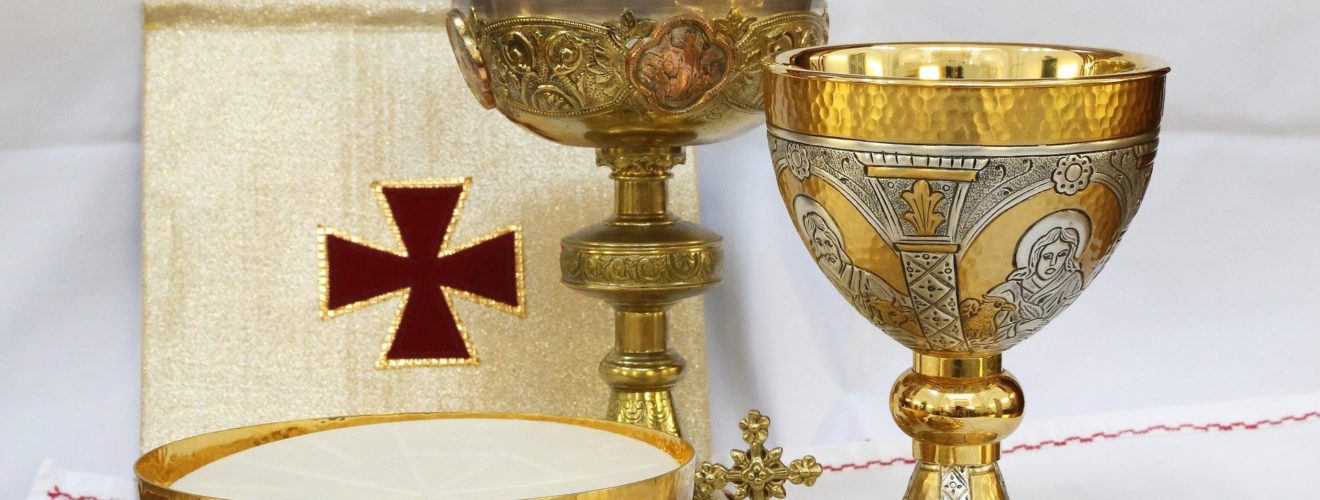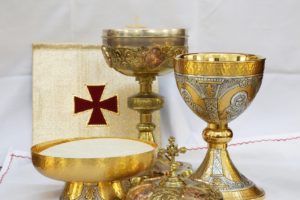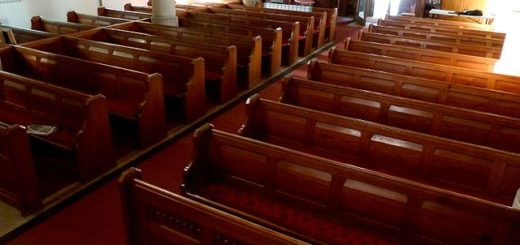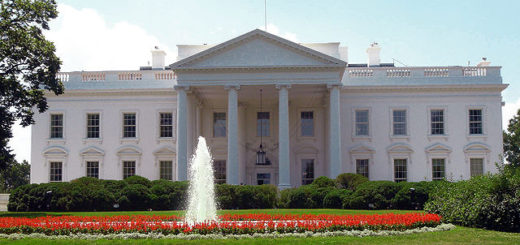Bishops Should Seek Unity, Not Communion Controversy

If you view the Catholic bishops’ communion-denial efforts with suspicion, you’re in good company. Pope Francis pushed back via the Vatican’s chief of doctrine, and dozens of cardinals and bishops expressed concern during the U.S. Conference of Catholic Bishops’ biannual meeting in June. (This contentious two-hour discussion can be viewed online here, starting 27 minutes into the meeting.)
Cardinal Luis Ladaria, the Vatican’s chief of doctrine, wrote to the U.S. bishops in May to urge them to “proceed with caution in their discussions.” He pointed out that abortion and euthanasia should not be “the only grave matters of Catholic moral and social teaching that demand the fullest level of accountability on the part of Catholics.” And the Vatican official advised “extensive and serene dialogue” among the bishops themselves, and between them and the pro-choice Catholic politicians in their jurisdictions, rather than putting the issue to a vote at their June meeting.

Image by James Chan from Pixabay
The American bishops rejected the Vatican’s approach one month later when they approved the drafting of a controversial pastoral letter that would give individual bishops the leeway to deny communion to elected officials whose actions they disagree with.
To tee up discussion during the bishops’ virtual meeting, Bishop Kevin Rhoads of Fort Wayne, Ind. — chair of the USCCB’s Committee on Doctrine –provided a pre-recorded backgrounder. He explained that “bishops have been concerned for years” about declining Mass attendance, a drop in the number of Catholics who believe that the Eucharist is the real body and blood of Christ, and a further fall-off in Mass attendance during Covid by parishioners who may never return.
A key goal of the bishops’ new five-year strategic plan, he said, is to “reinforce the centrality of the Eucharist to the life of the faithful.” The bishops would teach the faithful about the Eucharist as a mystery to be believed, celebrated and lived by issuing a pastoral letter. So far, so good.
But a subsection would address Eucharistic consistency, the worthiness to receive communion as set forth in canon law. Bishop Rhoads explained, “There was a consensus among the Doctrine Committee that one cannot discuss the centrality of the Eucharist as the source and summit of Christian life without addressing those actions that inflict damage to the honor due the sacrament or cause scandal to the faithful.”
Although he said, “it was never our thought to propose national norms for denying Catholics Holy Communion,” Bishop Rhoads left open the door for individual bishops to do so.
Cardinal Blase Cupich of Chicago called B.S. He questioned how the document was suddenly about helping the faithful understand the Eucharist, since in March the chair of the Catholic bishops’ group had told the Vatican about preparations to draft a document on whether Catholic politicians who support abortion should receive communion.
Cardinal Cupich tried to redirect the bishops’ focus toward pastoral support of all the faithful. “The issue is helping pastors reconnect with parishioners after some 18 months” away from churches due to the pandemic, he said. “Many priests in the archdiocese (of Chicago) are puzzled to hear bishops want to talk about excluding people.”
Building on those remarks, Bishop Robert McElroy of San Diego cautioned his brother bishops against weaponizing the Eucharist. He warned, “We will invite all of the political animosities that so tragically divide our nation into the very heart of the Eucharistic celebration. The sacrament that seeks to make us one will become for millions of Americans a sign of division.”
Bishop McElroy added that restricting communion based on a politician’s beliefs on abortion and euthanasia “will fatally undermine the witness of the Catholic church in the U.S. on racism, poverty and environmental destruction.”
He concluded, “Moving forward in haste will strengthen the belief of those in the church and in society who injuriously claim that our conference has adopted a tacit partisan alignment that undermines its independence in the prophetic proclamation of Jesus Christ.”
Somewhat sardonically, the chair of the USCCB Pro-Life Committee, Archbishop Joseph Naumann of Kansas City in Kansas, responded that he was “amused at those who think we’re rushing.” He criticized Joe Biden and other politicians who he said “flaunt their Catholicity” but disagree with fundamental church doctrine.
Archbishop Paul Etienne of Seattle lamented that the “cherished” topic of the Eucharist is “now enmeshed in a political discussion.” He expressed concern that the focus on Eucharistic consistency has “overpowered the life of Jesus, who came into the world to save, not to condemn.”
The archbishop noted that Jesus was often asked why he ate with sinners. “I like to say he answered that it was the only choice he had,” Archbishop Etienne said.
Echoing this point, Bishop Larry Silva of Honolulu said, “We don’t necessarily need to be the police of this. I fear sometimes we are trying to redeem the Redeemer.”
It is tragic that conservative Catholic bishops have sullied a critically important effort to rejuvenate Catholics’ faith and to invite them – sinners, all – to seek the body and blood of Jesus as nourishment on the journey toward eternal life. Like a wedding banquet trampled by a horde of unruly guests, the dream of what could have been has been forever diminished. But there are steps the bishops’ conference can take to heal past divisions and foster greater unity among American Catholics.
I’ll explore ideas for doing so in my third column, “The Presidency is a Secular, not a Religious, Job.”


